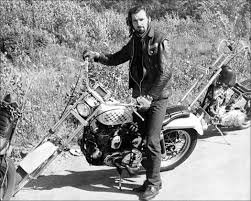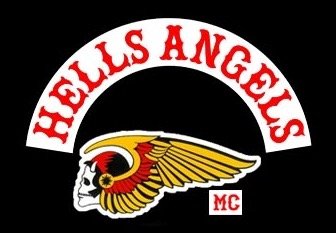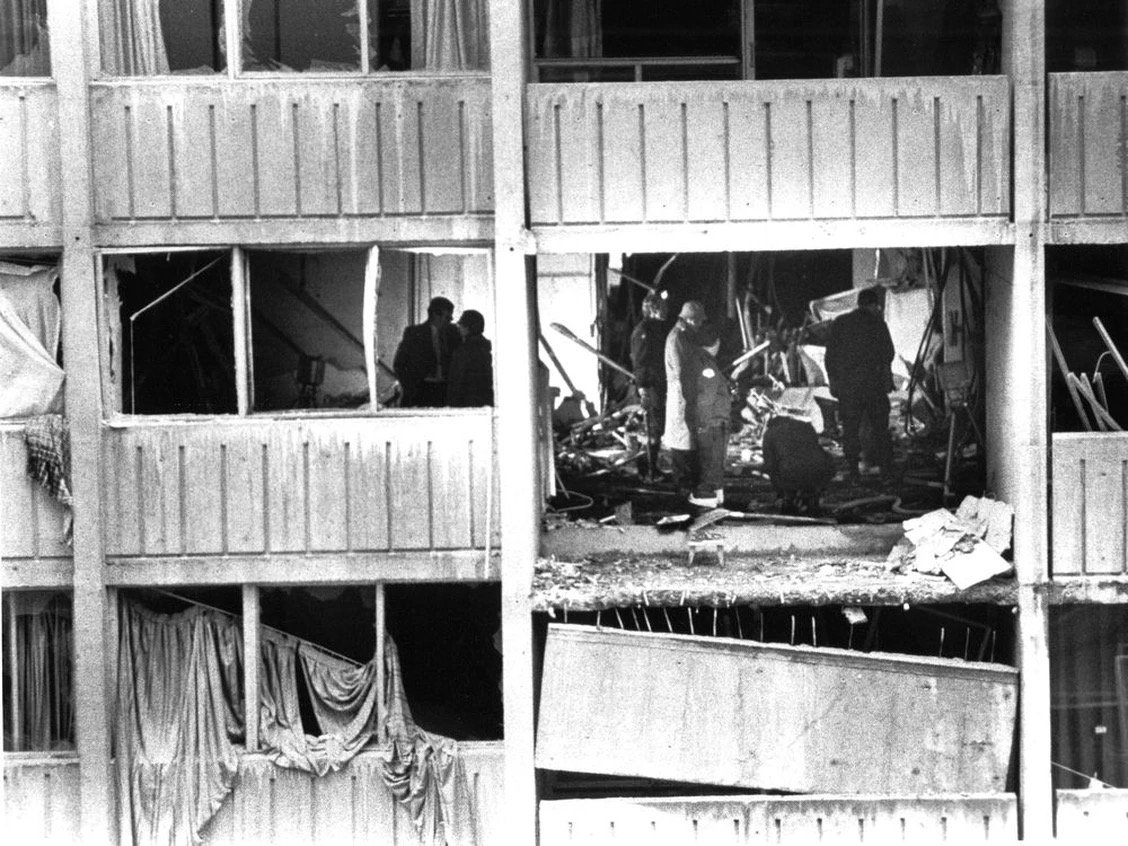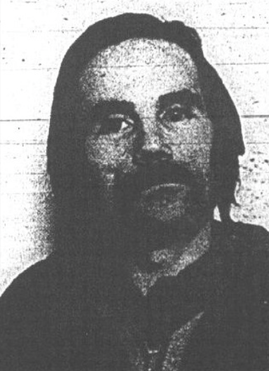Yves Trudeau– “Most Feared Men in Montreal’s Criminal World.”
/“In your lifetime, you have killed more people than the Canadian military did in the Gulf War.”
Have you ever wondered how life would have been in Le Plateau-Mont-Royal, Montreal, Quebec, in the late 1970s? Thinking of the beautiful atmosphere, you might wonder what life would have been like if you had visited there then. Well, think again.
Yves Trudeau with his motercycle
Known as a “psychopathic killer,” Yves Trudeau had no conscience for killing 43 people in his time as a member of the Hell's Angels Biker gang and was often under the influence of cocaine to help him carry out his murders. His violent and brutal nature made him one of the “most feared men in Montreal’s criminal world.”
“Canadian Industries Limited” is a production explosives company located in Amos, Quebec, and was Yves’s first job in the early 1960’s. This job introduced Yves’s interest, hobby, and talent for working with explosives.
Popeye Moto Club and Hells Angles
popeye moto club 1965 logo
Trudeau joined the Popeye Motorcycle Club in 1968 and became involved in a violent biker conflict in the 1970s. The Popeyes were in alliance with the Hells Angels, and they came into conflict with rival gangs like Satan's Choice and the Outlaws over control of the drug trade in Montreal at the time. This war would be known as “The Satan’s Choice-Popeyes War,” Montreal’s first biker war, and be how Trueadus’s name would be known for his killings and danger.
Trudeau rose to stardom in the Popeyes MC as a skilled and cutthroat hitman. known for his great attention to detail with his work on explosives and was even given the name "Apache" after he scalped one of his victims. His violent actions helped the Popeyes take control of key areas in Montreal by the mid-1970s.
Hells angles motorcycle club logo
In 1977, after Popeyes teamed up with the Hells Angels Club, Trudeau became a high-profile Hells Angels member in Quebec. He played a key role in starting a bloody war with the Outlaws on 17 February 1978, where he killed several members, cementing his reputation as one of the Hells Angels' most dangerous members.
By 1979, the Hells Angels in Montreal were split into two chapters, and Trudeau was assigned to the North chapter in Laval. This chapter was known for its violence, drug use, and reckless behaviour. Under Trudeau’s leadership, the Laval chapter became one of the most feared and chaotic groups in the Hells Angels.
November 1984 “de Maisonneuve Blvd. Bombing”
On November 26, 1984, a bomb exploded in a high-rise apartment in Montreal, killing four men, including Paul April, who was believed to be responsible for the recent killing of drug dealer Frank Peter Ryan. The blast was thought to be an act of revenge. It caused severe damage to the building, including the collapse of walls and elevators falling to the basement. The bomb was later traced to Yves Trudeau, a Hells Angel hitman. He had been hired by Ryan's successor from the West End Gang. After turning into an informant, Trudeau testified that he had sent April a VCR and TV set with 16 kilograms of explosives that were hidden inside.
Trudeau's actions in his lifetime made him one of the most prolific killers in the Hells Angels. He admitted to killing 43 people between 1970 and 1985. He was the first Canadian Hells Angel to receive the “Filthy Few” patch, a badge given to members who have killed for the club.
Sentencing
Trudeau’s time in prison was only eight years and was lowered because of the help of law enforcement. His statement made him a target in the criminal world. Trudeau passed on valuable information to investigators and helped uncover more about organized crime in Montreal. His involvement in the Hells Angels and organized crime made his case high-profile.
His status as an informant allowed him to reduce his sentence in some cases, though he still faced significant time behind bars. Trudeau’s decision to become an informant was risky, making him a target in the criminal world. Still, it was seen as an important step in tearing apart the Hells Angels’ Club. Despite the reduced sentence he received in exchange for his testimony, his decision to cooperate was highly controversial and dangerous.
New Identity
Yves Trueadeu
Trudeau was given a new identity with the witness protection program after he was given parole in 1994. The new identity, Denis Côté, was for his safety, as working with the police and providing testimony against the Hells Angels would make him a target for revenge by members of the gang. Details about his new identity, specifics of where he went, or what name he adopted, are kept confidential for security reasons. Trudeau’s life remained at risk due to the high stakes of his decision to turn informant. He lived with a woman who didn’t know about his past. Worked odd part-time jobs like working as an orderly in a nursing home and as a bus driver for the handicapped.
In 2000, he went back into cocaine addiction and sexually assaulted a 13-year-old boy after plying him with wine and beer, and pleaded guilty in 2004. He was sentenced to a four-year prison term. Trudeau returned to prison as both an informant and a child molester, meaning that he had to be kept in isolation 23 hours a day.
Unfortunately, in 2006. Trueadeu was diagnosed with bone marrow cancer. in 2008, he was granted permission to go to a treatment facility. As part of his release, he wasn’t allowed to be near or contact a minor of one of the victims of his crimes. He died in July of 2008 due to cancer.
Now, I will ask again. Would you want to visit Quebec in the 1960s now since you have read the gruesome history?
Megan Parsons, 25, from Osgoode, Ontario, is a published author of two self-published works, Luna’s Way Home and Just Blame Me. She is currently in her third year of the Professional Writing Program at Algonquin College. Specializing in short fiction, Megan has a passion for writing children’s stories, while also exploring themes of psychological horror in her work.
Interested in more of my writing? you can read more here!








